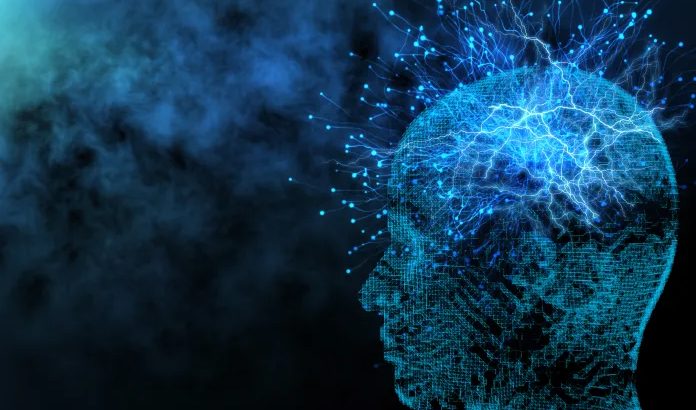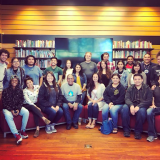
A Yogurt Model of the Self: Robot Bodies and Tantric Bodies Huntington Lecture Series
February 21, 2023
Wilkinson College of Arts, Humanities, and Social Sciences hosted Dr. Loriliai Biernacki, Professor of Religious Studies at the University of Colorado, Boulder, for a lecture on “A Yogurt Model of the Self: Robot Bodies and Tantric Bodies,” as part of the Department of Religious Studies, Huntington Lecture Series. Dr. Biernacki’s “yogurt model of the self” explores incarnation as fermentation between the body, soul, mind, and self.
At one point in her lecture, Dr. Biernacki looked to the future of AI, examining Dr. Ray Kurzweil’ prediction that humans will achieve immortality by downloading our consciousnesses into silicon and metal bodies by 2045. Metals affect which microbes flourish and which do not, and some models of the transhuman body may negate the presence of a microbiome, altogether.
“The metal our cyborg bodies are made of will affect our emotions, our choices, our own sense of self,” said Biernacki.
Biernacki’s “yogurt model” emphasizes the entwinement of the physical and subtle bodies, and echoes interdisciplinarity of her research into intersections in science and religion.
“Drawing on biological understandings of the body as a community of microorganisms in symbiotic relationship with human cells, Professor Biernacki argued that what we know as ‘self’ is highly dependent on our physical embodiment, even as many of those microorganisms cannot live outside of our bodies, either. The idea that we might be able to transfer our consciousness into a robotic metal body is therefore highly problematic,” said Dr. Nancy Martin, Professor of Religious Studies, Department Chair.
In another example, Dr. Biernacki explored the Tantric “‘subtle body,” consisting of chakras connected by channels, as a body contained within the physical body. Our body participates in and affects consciousness; this interchange denies a separate and distinct body and mind.
Dr. Biernacki recounted the story of Sankara, a Hindu Monk and practiced Yogi, leaving his body to inhabit a king’s in order to experience the pleasures of sex. Finding himself trapped within the king’s body, Sankara begins to change under the influence of the new, physical form. Like the “subtle body” affects the physical body it inhabits and vice versa, so too does the microbiome affect the psyche. “Who we are emotionally, psychologically, and intellectually,” said Biernacki, “depends on the microbes in our gut.”
If the majority of our bodies contain countless, microbial beings, how can a “self” exist? “Microbial inhabitants outnumber our own cells 10 to 1,” Dr. Biernacki stated, quoting David Relman, Professor of Microbiology at Stanford University.
“Microbes, even as they are influenced by biology, in turn push back against the body’s biology, steering it in a particular direction. One of the historical driving desires of yoga in India, especially Tantra, was to rework the idea of the binary to move toward recognition of a multiplicity of agencies within the body.”
The Huntington Lectureship, established in 1994 in honor of Professor Ron Huntington, brings prominent scholars in world religions to lecture at Chapman. Dr. Biernacki’s research examines Hinduism, the interface between religion and science, and gender. Her latest book, The Matter of Wonder: Abhinavagupta’s Panentheism and New Materialism, on the 11th century Indian philosopher Abhinavagupta, is available at Oxford University Press.


